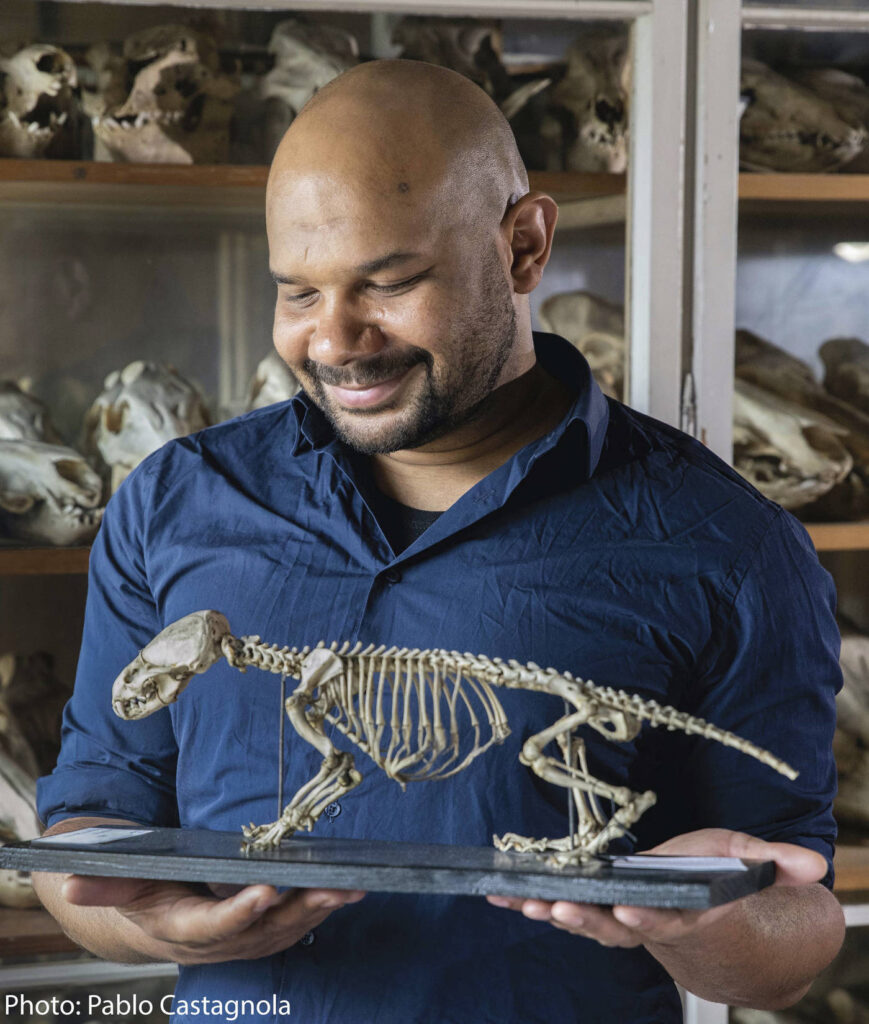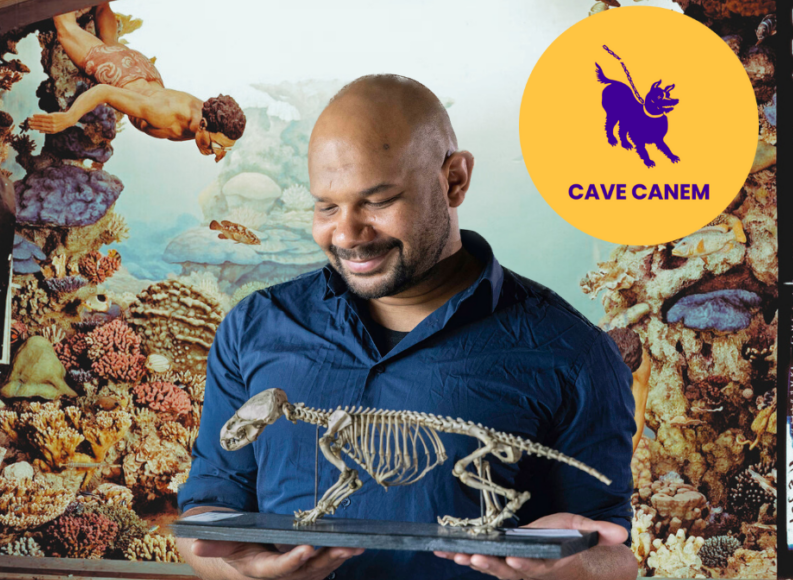Today, the Cave Canem Foundation announced the winner of the 2025 Cave Canem Prize: the poet and evolutionary biologist Brandon Kilbourne. Kilbourne will receive a cash prize of $10,000, and his manuscript will be published by Graywolf Press.
Formed to nurture and support exceptional manuscripts by unpublished Black poets, the Cave Canem Prize was first given in 1999. The inaugural winner was Nathasha Trethewey, for her collection Domestic Work—and in a full circle moment, Trethewey served as this year’s judge. The former US Poet Laureate and Pulitzer Prize winner called Dr. Kilbourne’s manuscript “a complex meditation on wonder and devastation…and an elegy for the earth” by a clear-eyed observer.
Dr. Kilbourne’s forthcoming collection, Natural History, bears witness to how the study of the natural world has been intertwined with the horrors of slavery and colonialism.

As a self-described childhood “dinosaur fanatic,” Dr. Kilbourne came to fossils early, and describes paleontology as a gateway to a larger interest in evolution. Though always fond of the arts, as a child in Louisiana he gravitated toward science, and studied biological engineering and biomechanics at the University of Chicago. Poetry was more of a hobby.
A postdoc position in Jena, Germany changed that. “When I left the US…I became more serious about writing, because I was somewhat more isolated, and isolation is something of an aid for a writer to focus on their work. And writing just offered me something to work on alone that I enjoyed,” he told me, via email. He began braiding his art to his scientific inquiry only recently, on being appointed to his current post at the Berlin Museum of Natural History.
Though Natural History is not born of a single “eureka moment,” Dr. Kilbourne formed the idea after getting involved with The MuseumLabs—a program that “brings together African and European museum and heritage professionals to discuss colonialism and its legacies, restitution, and museums in society.”
Pieces in his collection explore those painful legacies. In poems like “The Giraffe Titan (I),” Dr. Kilbourne enlists the dinosaur exhibition at his current workplace to compare the horrors of the Jurassic period to colonial violence.
“As an adult, my earlier unadulterated enthusiasm for natural history and museums is now tempered by a still growing knowledge of how the discipline and institutions are entwined with colonialism and slavery,” he wrote.
“And as my knowledge has grown, I think the specimens on display and in collections not only attest to the natural world’s wonder but also simultaneously report how disregard for the dignity and well-being of non-white peoples was once enmeshed in past scientific practice. My poetry aims to juxtapose these opposing facets of natural history specimens and museums as a means to raise awareness of this history. However, I think I would be remiss if I were to not point out that not all specimens in natural history museums should be instantly assumed to have a colonial origin.”
Dr. Kilbourne’s work proudly enters a larger body of science poetry. The titular poem in his collection is inspired in part by the scholarly work of Kathleen Murphy. Other beloved literary influences include Sterling A. Brown, Carlos Drummond de Andrade, Wisława Szymborska, Gary Snyder, Paul Celan, William Carlos Williams, and Betti Alver. And, of course, Natasha Trethewey.
“Natasha Trethewey’s Native Guard is one of my favorite collections of poetry, so her selection of my manuscript feels like an exceptional honor. All more so for her incredible use of poetry to examine history, which is what many of my poems try to do,” he said.
In honor of the Prize’s 25th anniversary, Cave Canem and Graywolf are partnering to present a slate of international events and readings, with further details to be announced soon.
In the meantime, you can find Natural History at your friendly neighborhood indie in Fall 2025.
Congratulations, Dr. Kilbourne!

